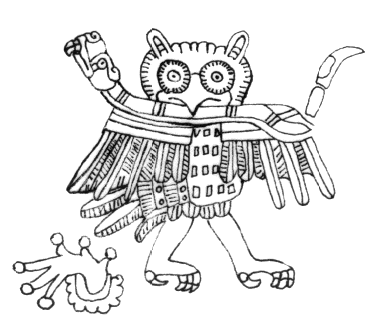カントの定言命法
Kategorischer Imperativ,
categorical imperative,
あなたの意志の格律が常に同時に普遍的な立法の原理として妥当しうるように行為せよ

カントの定言命法
Kategorischer Imperativ,
categorical imperative,
あなたの意志の格律が常に同時に普遍的な立法の原理として妥当しうるように行為せよ

イマヌエル・カントの定言命法とは『人倫の形而上学の 基礎づけ』 (Grundlegung zur Metaphysik der Sitten, 1785) において示され、1781年『純粋理性批判』Kant, Immanuel: Kritik der reinen Vernunft. Riga: J. F. Hartknoch 1781, 856 Seiten, Erstdruck.に、理論的に修正されたもの。『人倫の形而上学の基礎づけ』(じんりんのけいじじょうがくのきそづけ、独: Grundlegung zur Metaphysik der Sitten)は、1785年に出版されたイマヌエル・カントの倫理学・形而上学に関する著作。3年後の1788年に出版される『実践理性批判』と共に実践哲 学を扱っている。実践理性批判、人倫の形而上学と並びカント倫理学の主要著書の一つである。『道徳形而上学の基礎づけ』や『道徳形而上学原論』とも訳され てきた。
| 定 言命法 | Kategorischer Imperativ, categorical imperative | 定言命法[1](ていげんめいほう、独:
Kategorischer Imperativ[2]、英: categorical
imperative)とは、カント倫理学における根本的な原理であり、無条件に
「~せよ」と命じる絶対的命法である[3]。定言的命令(ていげんてきめいれい)とも言う。『人倫の形而上学の基礎づけ』
(Grundlegung zur Metaphysik der Sitten)
において提出され、『実践理性批判』において理論的な位置づけが若干修正された。『実践理性批判』の§7において「純粋実践理性の根本法則」として次のよ
うに定式化される。 あなたの意志の格律が常に同時に普遍的な立法の原理として妥当しうるよ うに行為せよ Handle nur nach derjenigen Maxime, durch die du zugleich wollen kannst, dass sie ein allgemeines Gesetz werde.- Immanuel Kant: AA IV, 421 Act as if the maxims of your action were to become through your will a universal law of nature. カントによれば、この根本法則に合致しうる行為が義務として我々に妥当する行為であり、道徳的法則に従った者だけが良い意志を実現させるということであ る。 他のあらゆる倫理学の原則は「~ならば、~せよ」という仮言命法であるのに対して、カントの定言命法は「~ならば」という条件が無い『無条件の行為』を要 求する。 一例として、「幸福になりたいならば嘘をつくな」という仮言命法を採用する場合の問題が挙げられる。ここでは「幸福になること」と「嘘をつかないこと」の 間に必然性が有るのか無いのかが問題となる。「嘘をつかないこと」は幸福になるための都合の良い手段にすぎない。従って、もし「幸福になること」と「嘘を つかないこと」の間に必然性が見出されない(つまり道徳で幸福を得られない)場合には、「幸福になることを目的にする人」は不道徳(嘘をつくこと)を行う ことになる。すなわち、カントは自身の意志を普遍的立法の原理と妥当するように行動することを求めているため、我々は一切の自愛の原理に基づく幸福への意 図を断ち切り、普遍的立法に合致する格率によって意志を確立しなければならないわけである。 また、仮言命法において何が道徳的かであるかの洞察は、行為(嘘をつくこと)と帰結(幸福)との間の自然必然性の洞察であり、経験論に属するものでしかな い。条件節を欠くカントの定言命法は、倫理学が経験論の範囲に陥ることを防ぎ、経験論から独立した純粋に実践的な倫理学の範囲を確保するのである。 The categorical imperative, which states that one must act only according to maxims which one could will to become a universal law. |
●上掲の定言命法を根拠づける、カントの
論理あるいは理論(=自己正当化のための論理)——『道徳の形而上学の基礎
づけ』第3部における最初の3つの節で、定言命法の可能性を導き出すための予備的な考察を提示した後、最後に結論を導き出している。カントは論理
的に形式的な結論を意味しているのではなく、むしろ、かなり法律的な意味で、確立された事実からの導出を試みている。
●『道徳[あるいは人倫]の形而上学の基礎づけ』(Groundwork of the Metaphysics of Morals, 1785)
『人倫の形而上学の基礎づけ』 (Grundlegung zur Metaphysik der Sitten)は、1785年に出版されたイマヌエル・カントの倫理学・形而上学に関する著作。3年後の1788年に出版される実践理性批判と共に実践哲 学を扱っている。実践理性批判、人倫の形而上学と並びカント倫理学の主要著書の一つである。
| How is a Categorical
Imperative Possible? |
定言命法はどのように可能になるのか? |
| Every rational being reckons
himself qua intelligence as belonging to the world of understanding,
and it is simply as an efficient cause belonging to that world that he
calls his causality a will. On the other side he is also conscious of
himself as a part of the world of sense in which his actions, which are
mere appearances [phenomena] of that causality, are displayed; we
cannot, however, discern how they are possible from this causality
which we do not know; but instead of that, these actions as belonging
to the sensible world must be viewed as determined by other phenomena,
namely, desires and inclinations. If therefore I were only a member of
the world of understanding, then all my actions would perfectly conform
to the principle of autonomy of the pure will; if I were only a part of
the world of sense, they would necessarily be assumed to conform wholly
to the natural law of desires and inclinations, in other words, to the
heteronomy of nature. (The former would rest on morality as the supreme
principle, the latter on happiness.) Since, however, the world of
understanding contains the foundation of the world of sense, and
consequently of its laws also, and accordingly gives the law to my will
(which belongs wholly to the world of understanding) directly, and must
be conceived as doing so, it follows that, although on the one side I
must regard myself as a being belonging to the world of sense, yet on
the other side I must recognize myself as subject as an intelligence to
the law of the world of understanding, i.e., to reason, which contains
this law in the idea of freedom, and therefore as subject to the
autonomy of the will: consequently I must regard the laws of the world
of understanding as imperatives for me and the actions which conform to
them as duties. |
理性ある存在は、知性という観点から、理解の世界に属しているとみな
す。そして、その世界に属する能動的な原因として、自分の因果律を意志と呼ぶのである。一方で、彼はまた、自分の行動が示される感覚の世界の一部としての
自分自身を意識している。しかし、この因果関係から、その行動がどのように可能なのかを我々は見分けることはできない。その代わりに、感覚の世界に属する
これらの行動は、他の現象、すなわち、欲望や傾向によって決定されていると見なさなければならない。したがって、私が理解の世界の構成員であるだけなら、
私の行動はすべて純粋な意志の自律性の原則に完全に適合するだろう。私が感覚の世界の一部であるだけなら、それらは必然的に、すなわち、欲望と傾向の自然
法則に完全に適合すると想定されるだろう。(前者は道徳を最高原理とし、後者は幸福を最高原理とする。)しかし、理解の世界は感覚の世界の基礎を含み、そ
の結果、その法則も含み、それに応じて私の意志(これは完全に理解の世界に属する)に直接法則を与え、そうしていると見なされなければならない。したがっ
て、一方では感覚の世界に属する存在として自分自身をみなさなければならないが、
他方では、私は自分自身を理解の世界の法則に従う知性、すなわち自由の概念にこの法則を含んでいる理性、そしてそれゆえに意志の自律に従う主体として認識
しなければならない。したがって、私は理解の世界の法則を私にとっての命令として、そしてそれらに従う行動を義務としてみなさなければならない。 |
| And thus what makes categorical
imperatives possible is this, that the idea of freedom makes me a
member of an intelligible world, in consequence of which, if I were
nothing else, all my actions would always conform to the autonomy of
the will; but as I at the same time intuite myself as a member of the
world of sense, they ought so to conform, and this categorical "ought"
implies a synthetic a priori proposition, inasmuch as besides my will
as affected by sensible desires there is added further the idea of the
same will but as belonging to the world of the understanding, pure and
practical of itself, which contains the supreme condition according to
reason of the former will; precisely as to the intuitions of sense
there are added concepts of the understanding which of themselves
signify nothing but regular form in general and in this way synthetic a
priori propositions become possible, on which all knowledge of physical
nature rests. |
そして、定言命法を可能にするのは、自由という概念が私を理解可能な世
界の構成員とするということである。その結果、私が他の何者でもなかったとしても、私の行動はすべて常に意志の自律性に適合することになる。しかし、同時
に私は感覚の世界の構成員であると直観しているため、それらの行動はそう適合すべきであり、この定言的「~すべき」は、感覚的な欲望によって影響を受ける
私の意志に加えて、
感覚的な欲求によって影響を受ける私の意志に加えて、理解力の世界に属する同じ意志の概念がさらに追加される。この理解力の世界は、それ自体が純粋かつ実
践的なものであり、前者の意志の理性に基づく最高の条件を含んでいる。感覚の直観には、それ自体は一般的な規則的な形式を意味する理解の概念が追加され
る。このようにして、総合的ア・プリオリ命題が可能になり、物理的な自然に関するすべての知識がそこに基づいている。 |
| https://navymule9.sakura.ne.jp/Grundlegung_Metaphysik_Sitten.html |
リンク
文献
その他の情報


Copyleft, CC, Mitzub'ixi Quq Chi'j, 1996-2099
Do not paste, but [re]think this message for all undergraduate
students!!!
Copyleft, CC, Mitzub'ixi Quq Chi'j, 1996-2099
☆
 ☆
☆